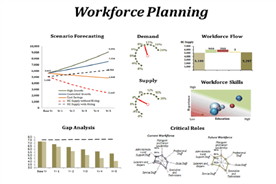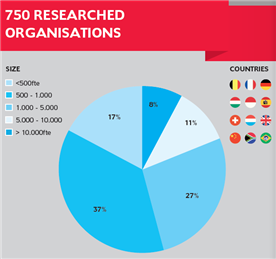Your Employee Value Proposition (EVP) is defined by what you offer your employees. A well-defined career path, a prime location, excellent primary benefits, and so forth. What do your employees get from you in return for their time, their efforts and their engagement?
Hans Rothweiler

Recent Posts
Four steps to maximize your Employee Value Proposition
Topics: Culture
In building a strong employer brand that is more than just a label, the first question to be answered is: ‘Do HR and Executive Management really create the conditions within the organisation that will attract, engage and retain top talent?’ The second question would be: ‘How can we positively influence the perception of these conditions among talent within as well as outside the company?’ To answer these questions HR could learn from marketing by adopting HR market analytics, which can provide insights to managing talent in a structured way.
Topics: Culture, Employer Branding
The Top Employers Institute believes it is time to take both HR and employer branding to a next level. It’s no surprise that some of the best-known high-street brands are also some of the best ‘employer brands’ too. While companies such as Google, Apple, eBay and Sony all regularly top polls for having the most recognised consumer brand, they are also the companies ordinary people most aspire to work at if offered the chance.
Topics: Employer Branding
The insights displayed below are derived from the Top Employers HR Best Practice Report, a detailed report, derived from the Top Employers Institute’s research, covering current trends in Talent Management and Talent Management Processes. Scroll down on this page to get access to the full report.
Topics: Career & Succession management, Workforce planning & Talent strategy
Workforce Planning & Life Time Learning: Top Employers know what others don’t
Employers, employees, workforce councils and labour unions should have a common goal: sustainable business growth. That is where the focus should be, since this is best for all involved, or not?
CEO’s often claim that “Human Capital is their most important asset..”. But if human capital truly is an asset, why doesn’t it appear on the balance sheet?
Topics: Culture
Topics: Career & Succession management, Workforce planning & Talent strategy
As many organisations face key strategic decisions more frequently at the moment, it has become clear that making decisions about Talent Management is just as important as making decisions about business issues. Knowing your workforce in terms of their unique qualities, how they respond to change, what drives them and how you can keep them pushing your organisation forward is not only a matter of necessity, it is the smart thing to do if you want your organisation to perform at its best.
Talent Management is just as important as business issues
As many organisations face key strategic decisions more frequently at the moment, it has become clear that making decisions about Talent Management is just as important as making decisions about business issues. Knowing your workforce in terms of their unique qualities, how they respond to change, what drives them and how you can keep them pushing your organisation forward is not only a matter of necessity, it is the smart thing to do if you want your organisation to perform at its best
Topics: Career & Succession management, Workforce planning & Talent strategy











